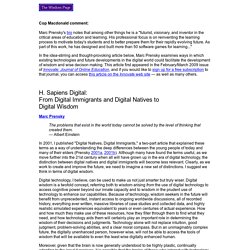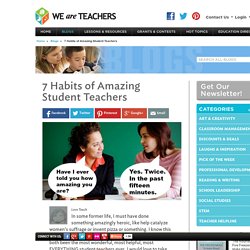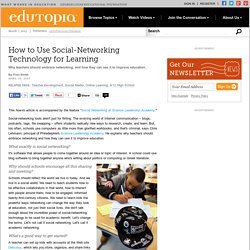

H. Sapiens Digital: From Digital Immigrants and Digital Natives to Digital Wisdom. Cop Macdonald comment: Marc Prensky's bio notes that among other things he is a "futurist, visionary, and inventor in the critical areas of education and learning.

His professional focus is on reinventing the learning process to motivate today's students and to better prepare them for their rapidly evolving future. As part of this work, he has designed and built more than 50 software games for learning... " In the idea-stirring and thought-provoking article below, Marc Prensky examines ways in which existing technologies and future developments in the digital world could facilitate the development of wisdom and wise decison making. This article first appeared in the February/March 2009 issue of Innovate: Journal of Online Education, and if you would like to sign up for a free subscription to that journal, you can access this article on the Innovate web site — as well as many others. Using Facebook and Other SNSs in K-12 Classrooms Ethical Considerations for Safe Social Networking.
From Digital Natives to Digital Wisdom. Smart%20Boards%2032699193.pdf. 7 Habits of Amazing Student Teachers. In some former life, I must have done something amazingly heroic, like help catalyze women’s suffrage or invent pizza or something.

I know this because I’ve had two student teachers so far, and they’ve both been the most wonderful, most helpful, most EVERYTHING student teachers ever. I would love to take credit for any part of their success, but I know I had nothing to do with it. If anything, all I contributed to was signing forms late and giving them stories to go home and tell their families. (“Today my supervising teacher walked around for an entire class period with a piece of melted chocolate on her neck. She kept asking why it smelled like cookies. Anyway, I decided to put together a list of characteristics and qualities that I’ve noticed in my student teachers: things that have made their time in my classroom beneficial to them AND to me. JIBO. Humanizing Technology: Perspectives and Prospectus. How to Use Social-Networking Technology for Learning. This how-to article is accompanied by the feature "Social Networking at Science Leadership Academy.

" Social-networking tools aren't just for flirting. The evolving world of Internet communication -- blogs, podcasts, tags, file swapping -- offers students radically new ways to research, create, and learn. But, too often, schools use computers as little more than glorified workbooks, and that's criminal, says Chris Lehmann, principal of Philadelphia's Science Leadership Academy. He explains why teachers should embrace networking and how they can use it to improve education. What exactly is social networking? It's software that allows people to come together around an idea or topic of interest. Why should schools encourage all this sharing and meeting? Schools should reflect the world we live in today. What's a good way to get started? How do you keep students from wasting time chatting or sneaking to inappropriate sites? You teach! Welcome to the Egan Library proxy server! Navigating the currents of change: technology, inclusion, and access for people with disabilities in the Pacific.